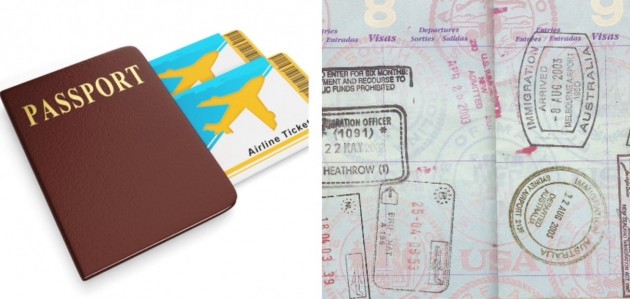4 Documents You Need to Get a Japanese Work Visa
Good for you! You put in the man hours and became your boss’ go-to guy/gal, and now you’re getting transferred to Japan to team up with the foreign office. The only thing that might put a damper on planning your bon voyage party is dealing with all the red tape that goes along with your visa paperwork.

Not to worry. As far as the Japanese Ministry of Foreign Affairs is concerned, I’ve got you covered. Here’s the list of what you’ll need to get a visa for an intra-company transfer:
1. Passport: Make sure your passport is valid for the duration of your stay (plus a little extra in case you need to stay a little longer).
2. One visa application form: Sorry Russian nationals and those hailing from NIS countries like Armenia, Belarus, Kazakhstan, and Moldova; you need to submit two visa application forms.
3. One photograph: Say “Cheese!” Again, nationals of Russia or NIS countries need to submit two.
4. Certificate of Eligibility: This isn’t exactly a necessity, but it sure makes the whole process a lot simpler. Presumably you would have had your Certificate of Eligibility, a document that states you meet the conditions for a work visa, issued beforehand. If you have it, bring along the original and one copy. If you decided to forgo this step—if you are working at a stock-exchange listed company this may not apply to your situation—you may find yourself having to do some extra paperwork with lengthy processing times in order to verify that your work situation is on the up and up.
If you’re a Chinese national, there are a few things you must also submit:
- Copy of the Chinese Family Register
- Temporary Residence Permit or Residence Certificate (If the applicant does not have a family register within the region under the jurisdiction of the embassy or consulate where the application will be made)
Depending on your nationality you may or may not need other documents for your application in addition to what I’ve listed. Save yourself from having a headache brought on by bureaucracy by taking a look at the website of your home embassy or consulate.
As with most things, it pays to be prepared, so make sure to have everything you might need, along with a few extra copies. Since you’re going to be living in Japan for a while, it might be a good idea to start learning Japanese as soon as possible. Not only will it provide you with a more fulfilling experience while you’re abroad, but it will make any interactions you have with Japanese officials regarding your paperwork go much more smoothly. If you already know a few Japanese phrases—I admit that most of the Japanese I know comes from watching foreign TV programming—then you should try our Japanese Level Test. If your skills aren’t as good as you’d hoped, visit our Enquiry Centre for information on Classes available in your area.


